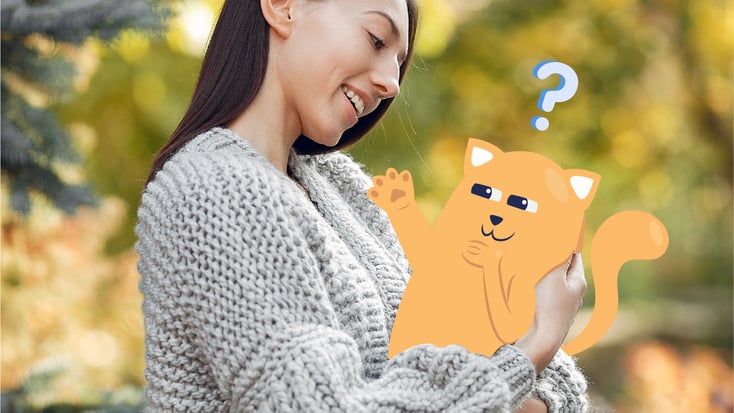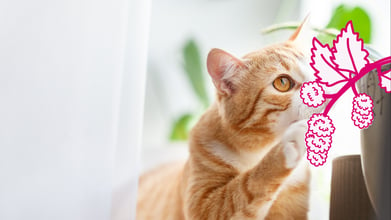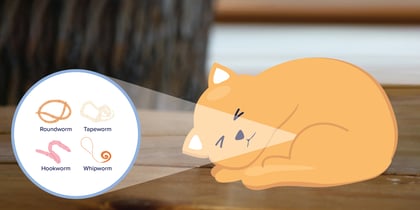Do Cats Remember People?

Table of Contents
Can Cats Remember You?
Absolutely, cats have the ability to remember and recognize people. As cat lovers, we cherish every moment spent with our feline companions. When we have to be away from them, whether just going to work for the day or going on vacation and leaving them with a pet sitter, it's natural to wonder if they will remember and recognize us when we return.
This curiosity leads us to the fascinating topic of feline memory, where we discover that our cats are capable of more than just their independent and aloof attitudes. So, let's dive into the world of how cats remember and recognize their owners.
- Cats have the ability to remember and recognize people, including their owners.
- Cats remember people based on specific smells and sounds associated with them.
- Building a strong bond with your cat through care, attention, and playtime helps them remember you.
Do Cats Have a Good Memory?
Cats have a good memory, and just like humans and other animals, they have various types of memory that serve different purposes.
Short-term memory
Cats’ short-term memory helps them process and retain information for a brief period, usually lasting for a few minutes. This memory type assists cats in performing various activities, such as locating their food bowl or litter box, especially if it was moved recently.
Additionally, if a cat is playing with a toy and loses sight of it, they can remember its location for a short period of time and quickly locate it again.
Long-term memory
Long-term memory is where cats excel. They can store information and experiences over an extended period ranging from several weeks to several years.
Although cats tend to have a limited number of people or places saved in their long-term memory, they can recall them for many years, whether positive or negative memories. For instance, cats often remember their human companions even after a long separation and display excitement and affection when reunited.
How Do Cats Form Their Memories?
Cats are truly remarkable pets, with an impressive ability to navigate their surroundings with ease. Thanks to their incredible spatial memory, cats are able to remember the layout of their environment, including the location of their litter box, favorite sleeping spot, and any potential hazards. This is why your cat can move around your home so gracefully, even in the dark.
But did you know that cats also rely heavily on their senses and associative memory to recall information? You may remember the excitement your furry friend shows when they hear the sound of a can opener, signaling it's time for their favorite food.
On the other hand, you might notice your cat avoiding a particular area of the garden where they had a fight with another cat due to a negative association.
These positive and negative associations can have a lasting impact on your cat's behavior towards specific individuals or companion animals.
So the next time you observe your cat displaying a particular behavior, consider if it could be due to their powerful memory and association with certain smells, sounds, or events.
What Triggers Your Pet Cat to Remember a Person?
It turns out that cats have amazing memory recall, and they can remember people based on specific smells and sounds associated with them. But they're also fairly selective in what they choose to remember.
If you want your cat to remember you, you'll need to make a significant impact on their life by providing them with food, water, attention, and lots of playtime. When you regularly play with your cat, they'll start to associate your scent and voice with the positive bonding experience of playtime, and they'll remember you for a long time.
But it's not just about forming positive associations – cats also have long-term memories that allow them to form bonds with their owners, remember past experiences, and even hold grudges. If a cat has been mistreated, they will often remember the experience for years and have difficulty trusting humans again.
So, remember to treat your furry friend with kindness and respect, and you'll be building a positive and lasting memory in their mind.
Do Cats Recognize Their Owners?
Have you ever wondered if your cat recognizes you when you come back home? The answer is a resounding YES! But it's not just about recognizing your face – cats use their incredible senses to pick up on their favorite humans' unique smells, sounds, and movements.
They can even distinguish their owner’s voice from that of strangers, and if you're lucky enough to have established a strong bond with your furry friend, they'll likely show it by purring, rubbing, and head-butting you. In a cat’s mentality, head-butting is a special type of compliment reserved for a select few- so if your kitty greets you this way, know that you have earned their full approval.
Cats also meow to their human companions far more often than they do to each other as a special way to communicate with only you. Additionally, many experimental studies have demonstrated that when given a choice between a favorite treat, toy, or even another kitty, cats will prefer their human companions the majority of the time.
So next time you're snuggling up with your cat, remember that you've made a lasting impression on them – one that will stay with them for a long time.
How to Strengthen Your Bond With Your Cat
Creating a deep and meaningful bond with your cat goes beyond just sharing positive experiences with them. It's about respecting their boundaries, providing a safe and secure environment, and tuning in to their unique personality and preferences. By doing so, you can strengthen your relationship and create unforgettable memories with your furry friend.
Additionally, you may have noticed that when your kitty is relaxed and content, they will close their eyes slowly. This is called a “slow blink,” and cats use this facial expression to convey happiness and security. Therefore, the next time you see your cat do this, you can mimic it back to them to say, ”I’m happy too.”
But what if your cat has had a negative experience, like a traumatic vet visit? Many cats are terrified of going to a veterinary hospital and will demonstrate aggression in these situations. Don't worry, with some patience, understanding, and positive reinforcement, you can help your cat overcome their fears.
Many cats are far less stressed during home veterinary visits, so this may be a good way to have your feline friend cared for if they fit in this category. Approaching veterinary care this way can help to build positive associations with the vet and reduce any anxiety or fear your cat may have, in addition to providing the care they need to stay happy and healthy for years to come.
Conclusion
So, does your cat remember you? Absolutely! But whether they miss you or not depends on the strength of your bond. Remember to leave a positive impression and create happy memories with your feline friend. If they tend to greet you at the door when you arrive home, that is an excellent sign that they value your presence.
Frequently Asked Questions
What causes memory loss in cats?
As cats age, they may lose brain cells, contributing to mental decline and memory loss. In some cases, senior cats may develop feline cognitive dysfunction (FCD), similar to dementia in humans and canines.
Medical conditions such as hyperthyroidism, kidney disease, and diabetes can also contribute to cat memory loss. This is why it is essential to have routine annual bloodwork done on any cat above middle age.
Even if your kitty seems “normal,” pet parents are always surprised at how well our feline friends can hide illness, giving no outward signs that anything is wrong. Bloodwork is often the only way that your veterinarian can detect these issues so that they can be managed appropriately.
How do I know if my cat has memory loss?
Signs of memory loss in cats can include forgetting previously learned behaviors or routines, becoming disoriented or confused in familiar environments, changes in interaction with other animals or people, and alterations in sleep patterns.
Signs of dementia often worsen at night, similar to Sundowner’s syndrome in elderly people. Affected cats will often become more restless at night and may pace and vocalize excessively.
If you suspect your cat may be experiencing memory loss or cognitive decline, it's best to consult your veterinarian for a proper diagnosis and treatment plan.
How to support cats' cognitive health as they age?
Help your senior cat maintain good cognitive health by providing a balanced diet and regular exercise. Engage their mind with interactive toys and puzzles. Keep their environment calm and consistent to reduce stress. Make sure they have comfortable sleeping spots and prioritize regular checkups with your veterinarian to monitor your cat’s overall health.
Can I give my cat supplements to improve their cognitive skills?
It’s essential to consult with your veterinarian before giving your cat any supplements or medications, such as antioxidants and omega-3 fatty acids, that may help improve cognitive function. Your vet can help determine if these supplements are suitable for your cat and will recommend safe and effective products.
Do cats recognize their owner's face?
Yes, cats can recognize their owners' faces, voices, and scents. Even though cats don't have the same eyesight as humans, but they can still distinguish between familiar and unfamiliar faces. They may also use body language and tone of voice to recognize their owners.
How long will a cat remember you?
Cats have a remarkable ability to remember their owners, even after being separated for long periods. Although there's no exact timeline for how long a cat can remember you, cats have been known to recognize their owners even after years of separation.
The strength of your bond with your cat and the frequency and nature of your interactions can also affect how long your cat remembers you, so nurture your bond with your kitty as you would any other cherished friendship.







